Will Campylobacter Outbreak Spell the End of Chicken Kaporos in Brooklyn?
The News
On October 23rd, an Hasidic Jewish man from Brooklyn contacted TheirTurn to report that an infectious disease called campylobacter that “originated from Kaporos” was “going around” and that the city’s Department of Health (DOH) is “very aware of it” and “wants to be contacted by reporters.” The source, who asked not to be identified for fear of retaliation in the Hasidic community, contacted TheirTurn because, for the past seven years, we have been reporting on the health risks associated with Kaporos and the DOH’s refusal to acknowledge and address them. Campylobacter, which can be transmitted from animals to humans and causes fever, nausea, severe abdominal pain and diarrhea, can be fatal among young children, the elderly and people with compromised immune systems.
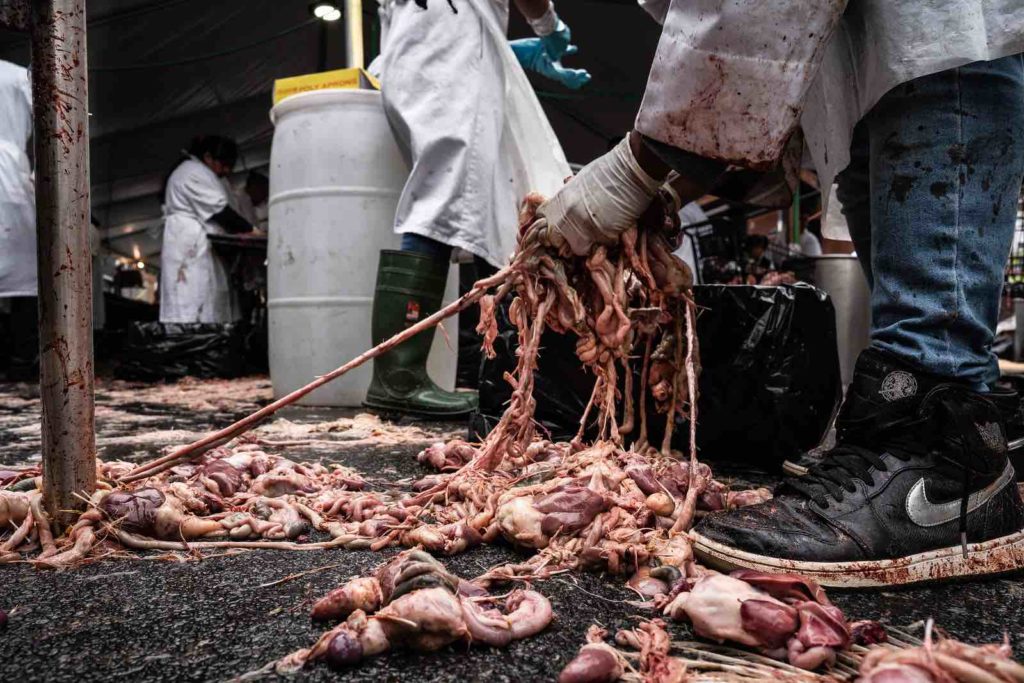
During Kaporos, the blood and body parts of thousands of chickens who are killed in makeshift slaughterhouses contaminate the public streets and sidewalks in violation of seven New York City Health codes.
On October 25th, the DOH issued a public statement about the outbreak, but it has not yet publicly linked the campylobacter infections to Kaporos. “We are currently investigating an increase in campylobacteriosis cases in Brooklyn. We do not yet know the cause of the increase. While our data is still preliminary, there are approximately 50 cases reported in the affected areas in Brooklyn since the beginning of October.” In its statement, the DOH does not disclose that the “affected areas” are Hasidic neighborhoods, and it does not acknowledge that the “beginning of October” is when tens of thousands of Hasidim came into physical contact with live chickens.
Experts suspect that the number of campylobacter cases is much higher than 50. An underestimation is especially likely in Hasidic neighborhoods where family physicians are reluctant to report campylobacter cases, as required by law, for fear of shining a spotlight on the religious ritual that led to the outbreak.
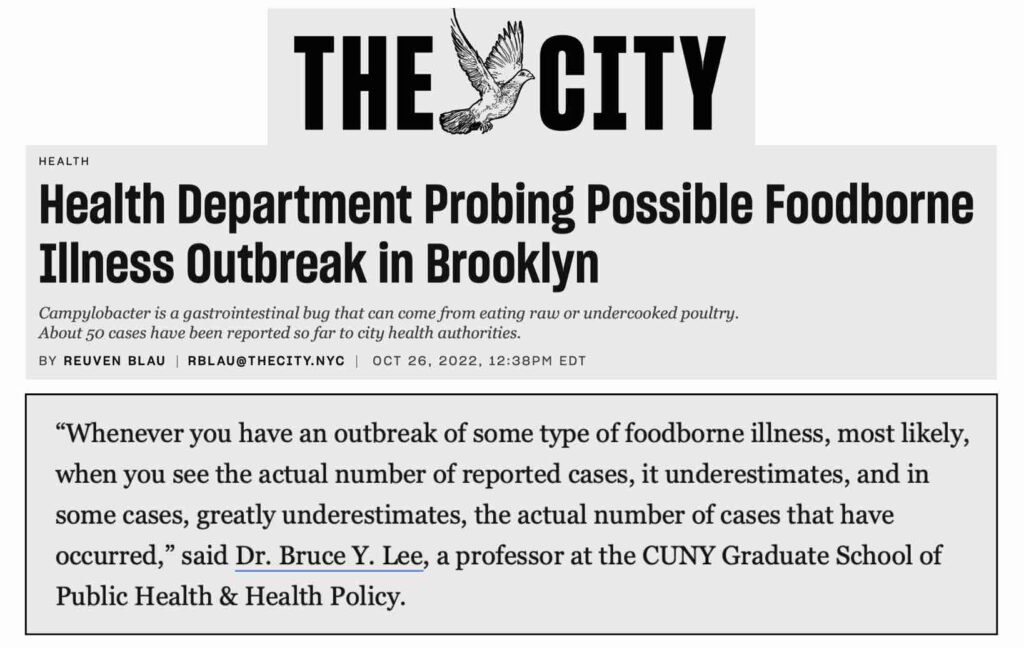
The NYC Dept. of Health is “still investigating” the link between the outbreak of campylobacter and Kaporos, but health officials are aware that the outbreak occurred in Hasidic neighborhoods when the ritual sacrifice took place
Reporters have asked the DOH how many of the people infected with campylobacter are – or were – hospitalized and how many died, but the DOH has not yet answered these questions. It also hasn’t disclosed the neighborhoods where the outbreaks occurred. Instead, it states that it is “still investigating.”
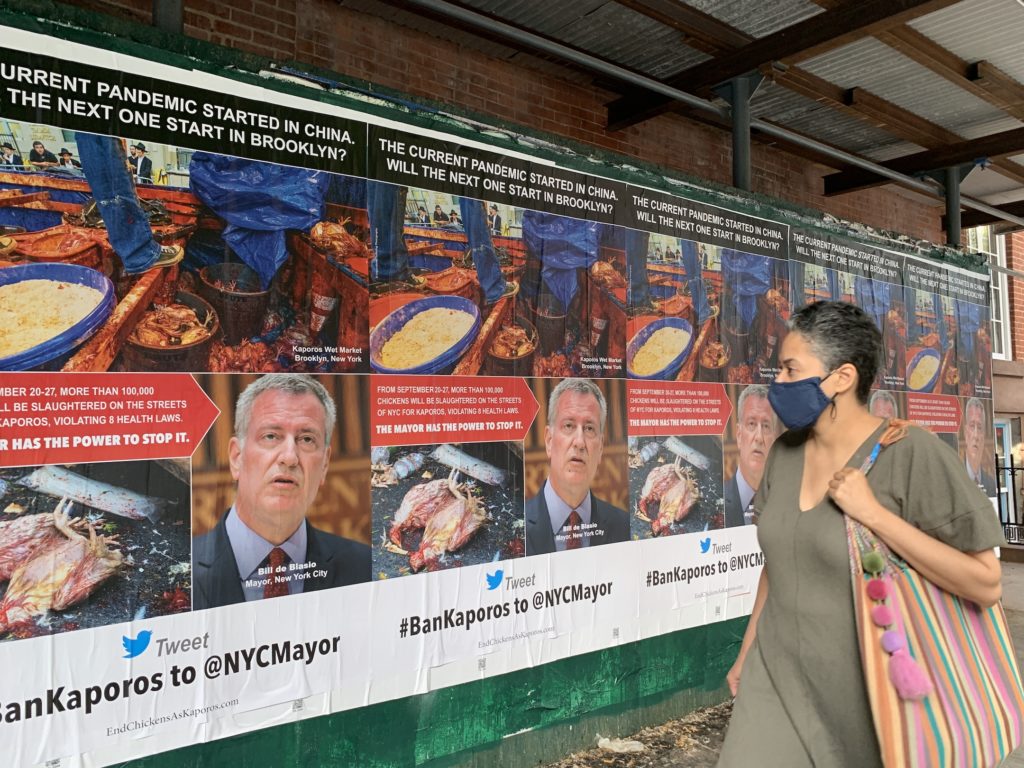
In 2020, advocacy groups plastered NYC with posters highlighting the risk of zoonotic disease transmission during Kaporos
Kaporos is a ritual slaughter during which participants swing live chickens around their heads while saying a prayer to atone for their sins before Yom Kippur, the Jewish day of atonement. In order to facilitate the ritual, vendors purchase an estimated 100,000 chickens, sell them to people who partake in the ritual and kill them in makeshift slaughterhouses erected on residential streets in violation of seven NYC health codes. The birds are held in cramped cages on public streets where they are deprived of food, water and protection from weather extremes for up to several days before being slaughtered. Many die from illness and exposure in the crates before being used in the ritual.
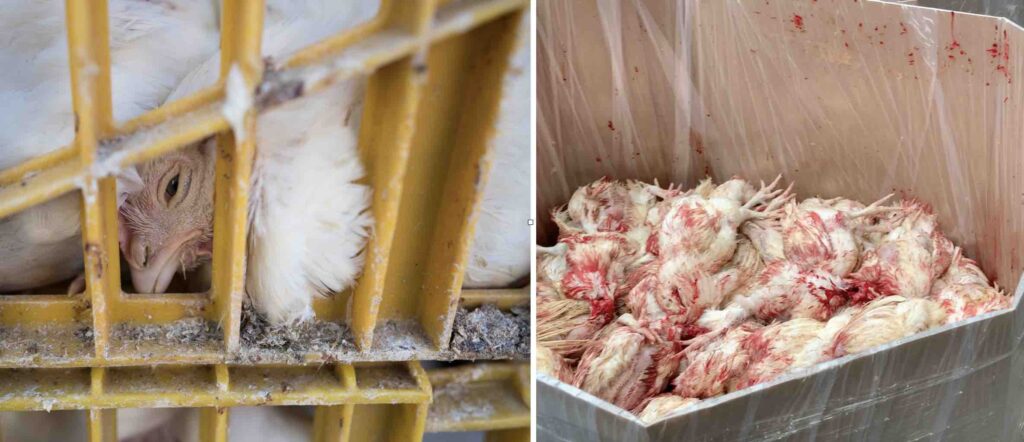
The NYC Department of Health has preliminarily reported that 50 people contracted campylobacter in Brooklyn in early October. It has not yet disclosed that the cases are tied to Kaporos, the ritual swinging and slaughter of an estimated 100,000 chickens
The chicken vendors don’t have permits, but, at the direction of the Mayor, the NYPD assists in the ritual by providing barricades, floodlights and a security presence at an estimated 30 Kaporos sites in Brooklyn.
Over the years, animal welfare and public health advocates have sounded the alarm about the health risks, but the DOH has dismissed their concerns and refused to enforce the health codes on the grounds that “no disease signals have been associated with the practice.” That rationale, however, is a smokescreen. Because the Kaporos practitioners represent a voting bloc that often impacts the outcome of city and state elections, the Health Commissioner, who reports to the Mayor, has turned a blind eye to the obvious health risks; the previous reports of campylobacter; and a toxicology report that describes Kaporos as “dangerous condition” that “poses a significant public health hazard.”
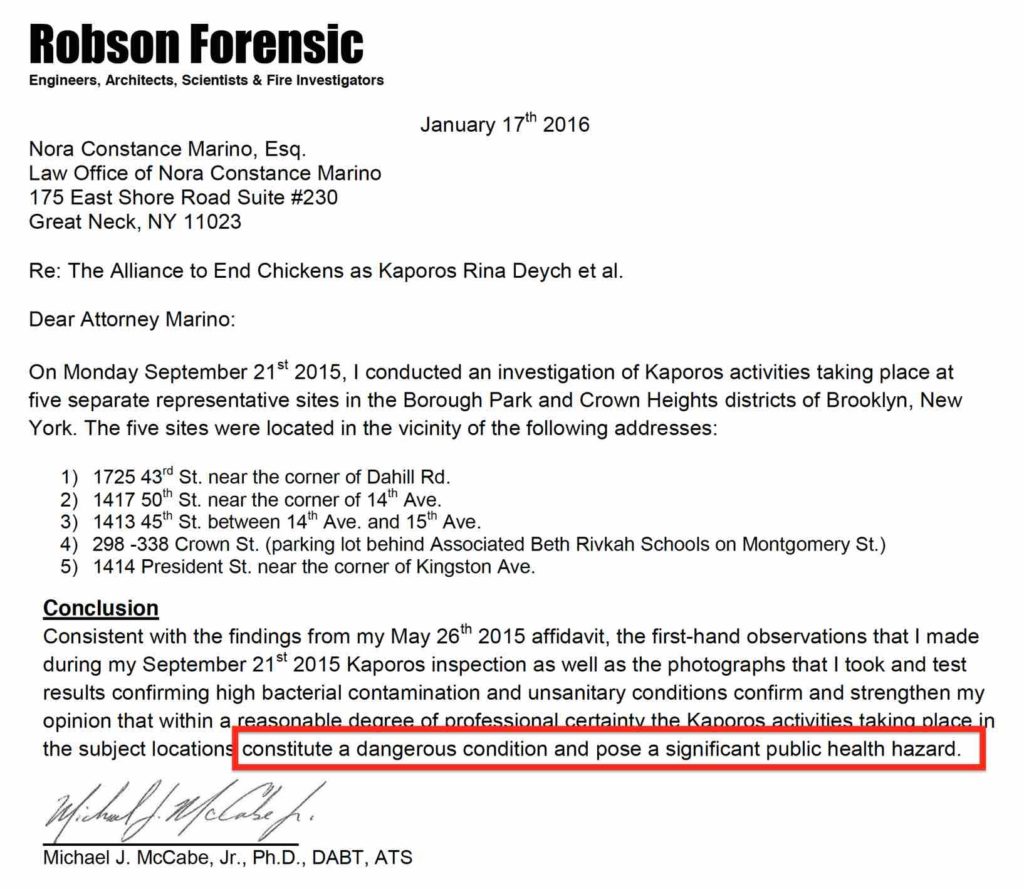
The Mayor’s Health Commissioners have refused to address a toxicology report that outlines the public health risks posed by the slaughter of over 100,000 chickens on public streets during Kaporos.
If the Health Commissioner does, in fact, “want to be contacted by reporters” about the outbreak, then he has probably determined that burying the health risks associated with Kaporos now puts him in greater political and legal jeopardy than disclosing them, in defiance of the Mayor. Here’s why:
- Because the toxicology report and other warnings have been in the public domain for many years, the Health Commissioner knows that the public, the media and even elected officials would accuse the Health Commissioner of having “blood on his hands” if people die from an infectious disease outbreak tied to Kaporos.
- Kaporos practitioners and animal rescuers have contracted campylobacter in previous years, but, with 50 or more cases reported in just one year, the DOH can no longer be on record with its statement that “no disease signals have been associated with the practice.”
- When COVID began to spread globally, the public learned that infectious diseases can emerge from live animal markets. If a deadly infectious disease emerged from one of the estimated 30 makeshift markets that sell live chickens for Kaporos, then the public would wonder why the DOH didn’t shut it down. The Health Commissioner knows that he, and not the Mayor, would be held accountable, despite the fact that the Mayor instructs the DOH to allow Kaporos. (Note: Kaporos is potentially more dangerous than other live animal markets because the customers themselves physically handle the live animals, and most are not wearing protective gear. In addition, many of the animals are visibly sick and dying.)
- New Yorkers are frustrated by the Health Department’s failure to curb behaviors in the Hasidic community that jeopardize the public health. During the first several months of COVID, for instance, Hasidim held large events during which tens of thousands of people came together indoors without masks or social distancing. New Yorkers were infuriated by the reckless behavior, which put the public and health care workers at great risk, and by the City’s refusal to hold the perpetrators accountable.
- Highly-publicized measles and polio outbreaks in 2019 and 2022 shined a spotlight on the need for the DOH to take authoritative steps to prevent disease outbreaks in Hasidic Jewish communities.
- Given the prevalence of avian flu, the DOH knows that some of the estimated 100,000 chickens who are trucked into the city could carry the virus.
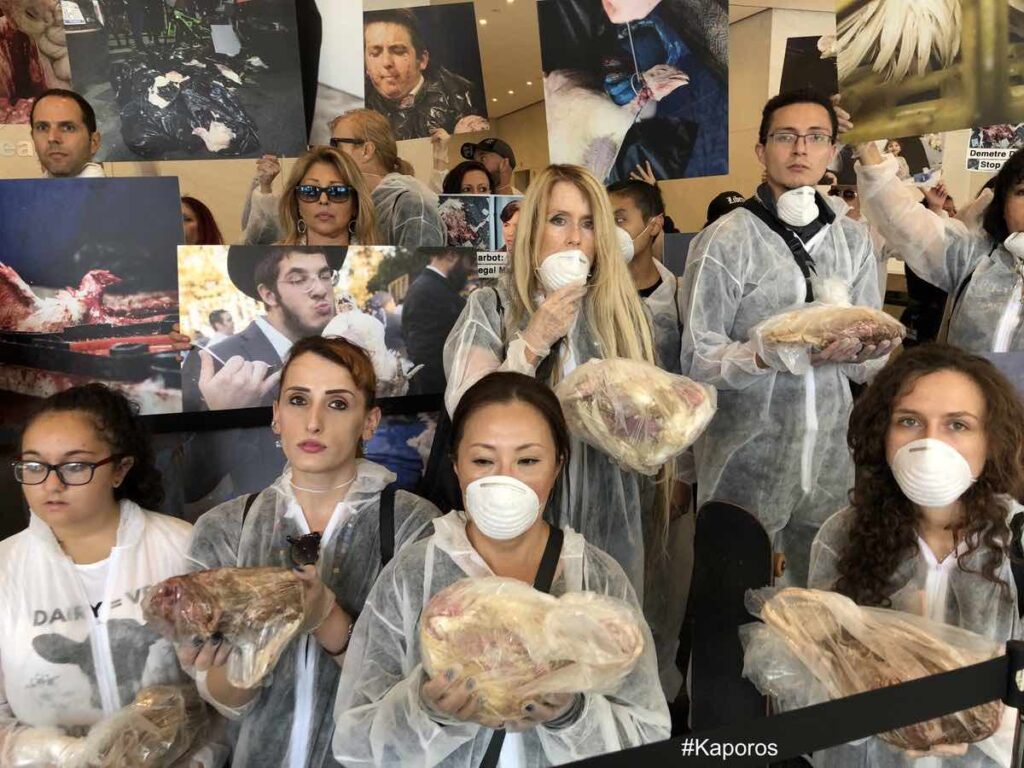
In 2018, animal rights activists brought dead Kaporos chickens left on the streets of Brooklyn into the NYC Department of Health to call attention to the health risks associated with the ritual slaughter
In 2017, animal rights and public health advocates launched a campaign to compel the Health Commissioner at the time, Dr. Mary Bassett, to enforce the health codes violated during Kaporos. After being subjected to ten months of protests, Dr. Bassett resigned just one year into a four year term. In a speech at the Boston University School of Public Health during which she anticipated a protest, Dr. Bassett acknowledged that politics interfered with her ability to address the health risks associated with Kaporos: “Those of us who work in government face the reality of the fact that the people who appoint us have to go back to the public and back to the ballot box to be reappointed, so there’s always going to be a need for advocacy from people outside of government. For someone who is passionately committed to many issues embraced by advocates, it can be difficult to acknowledge the role that I play as a political appointee. I can’t always be at the barricades.”
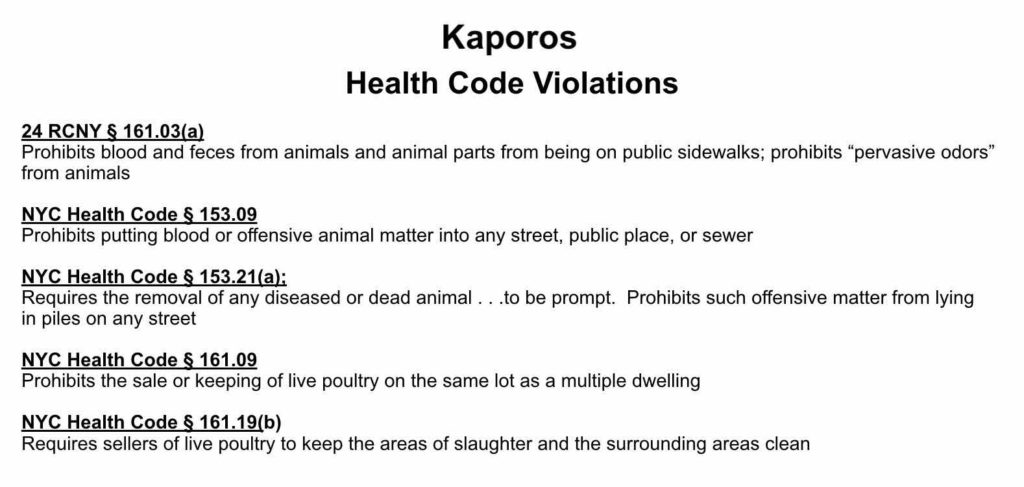
NYC health codes violated during Kaporos, a ritual chicken slaughter that takes place before Yom Kippur, the Jewish day of atonement
With the outbreak of campylobacter, which is undoubtedly causing the victims a great deal of pain and suffering, the current Health Commissioner could very well want to join the advocates at the barricades because allowing Kaporos to take place in the future subjects him and the DOH to legal liability and public relations backlash in the event of the outbreak of a more serious infectious disease.
Filed under: Food
Tagged with: Alliance to End Chickens as Kaporos, Kaporos



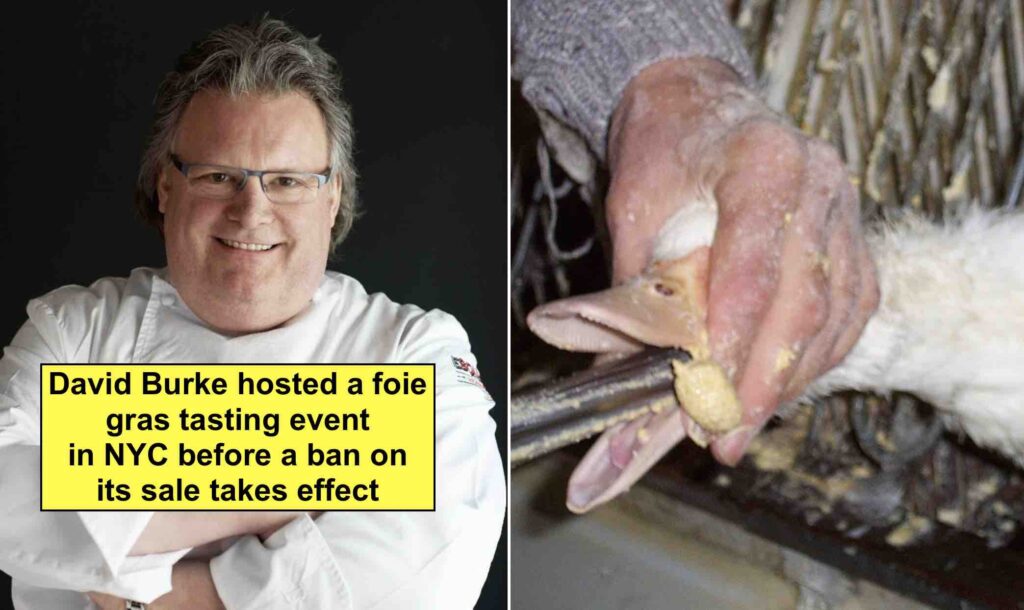
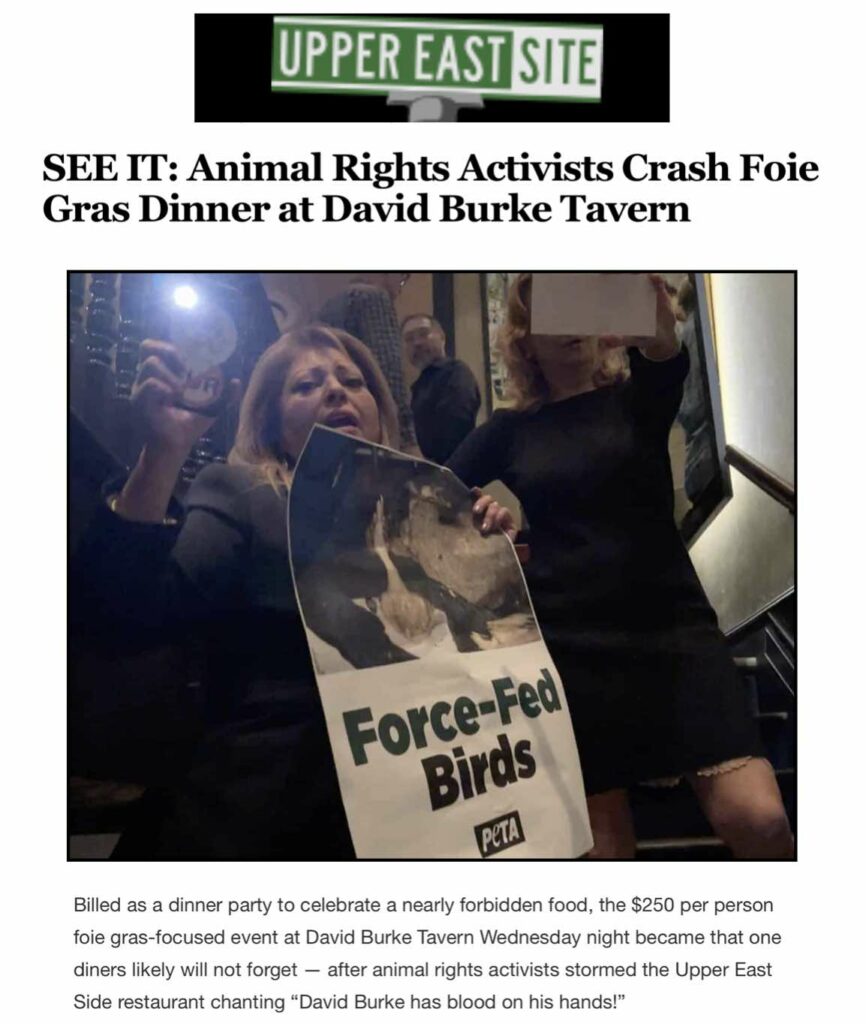
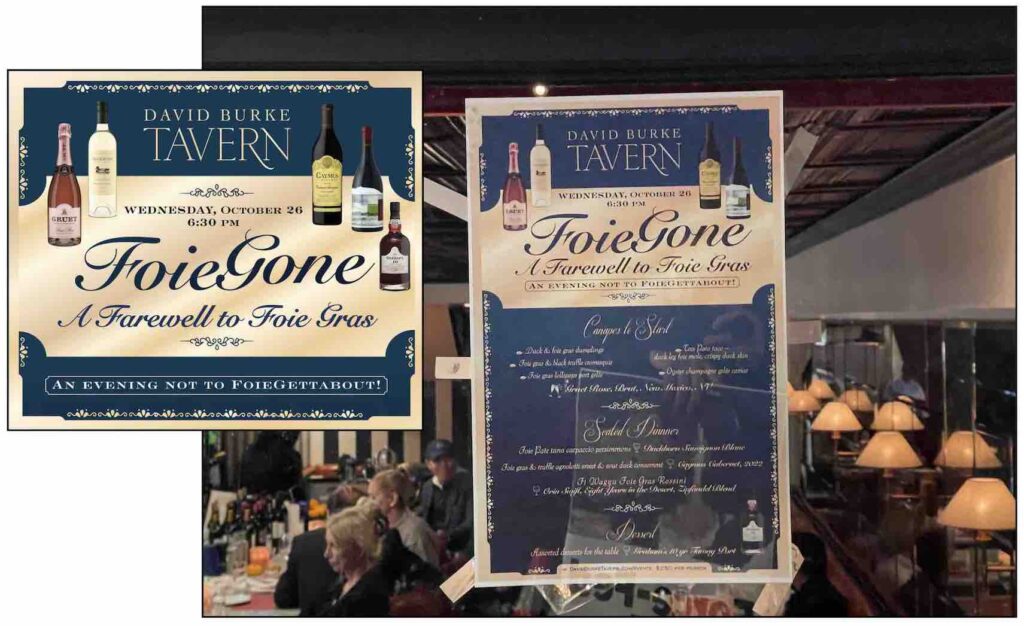
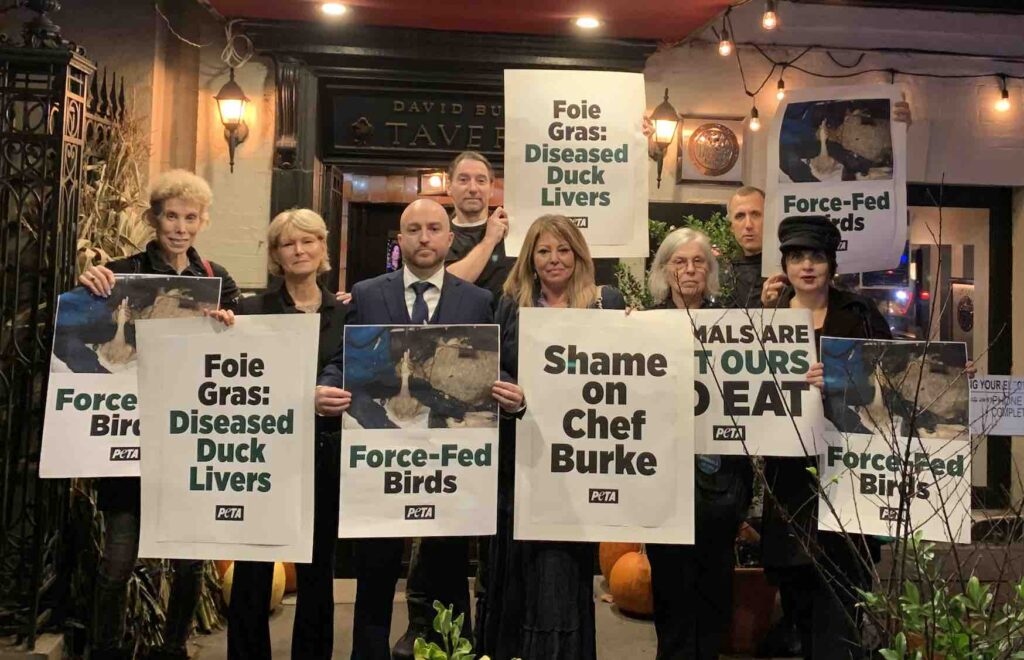
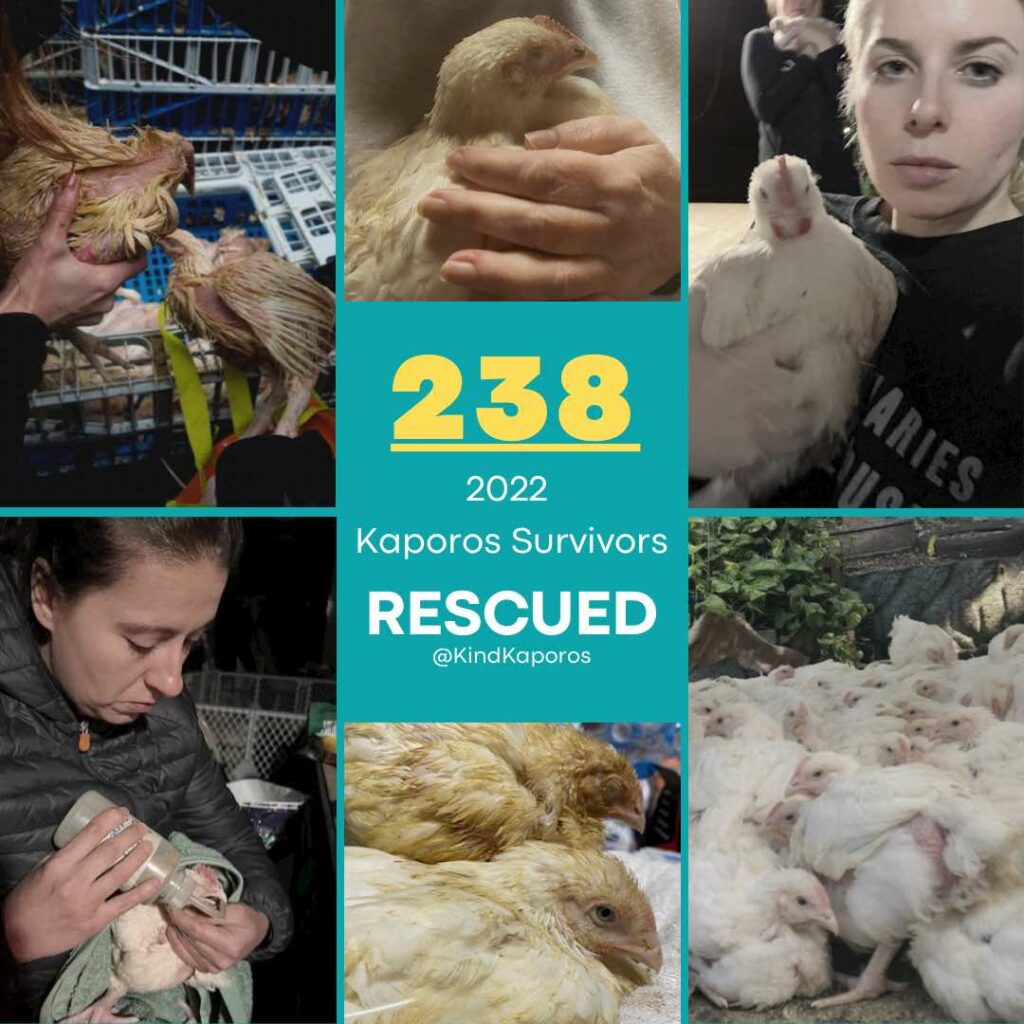
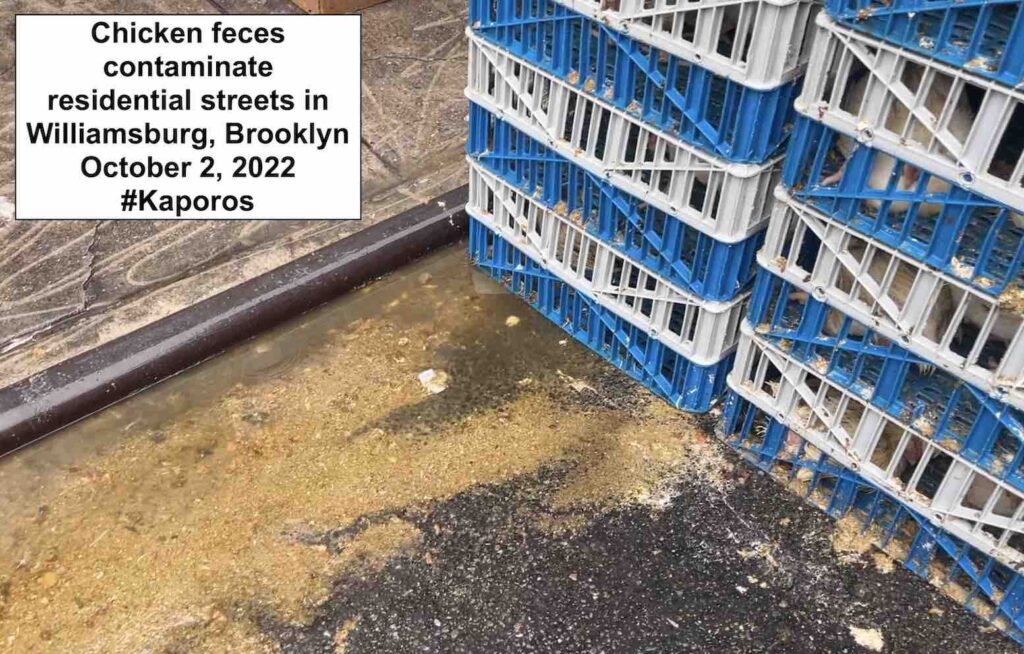
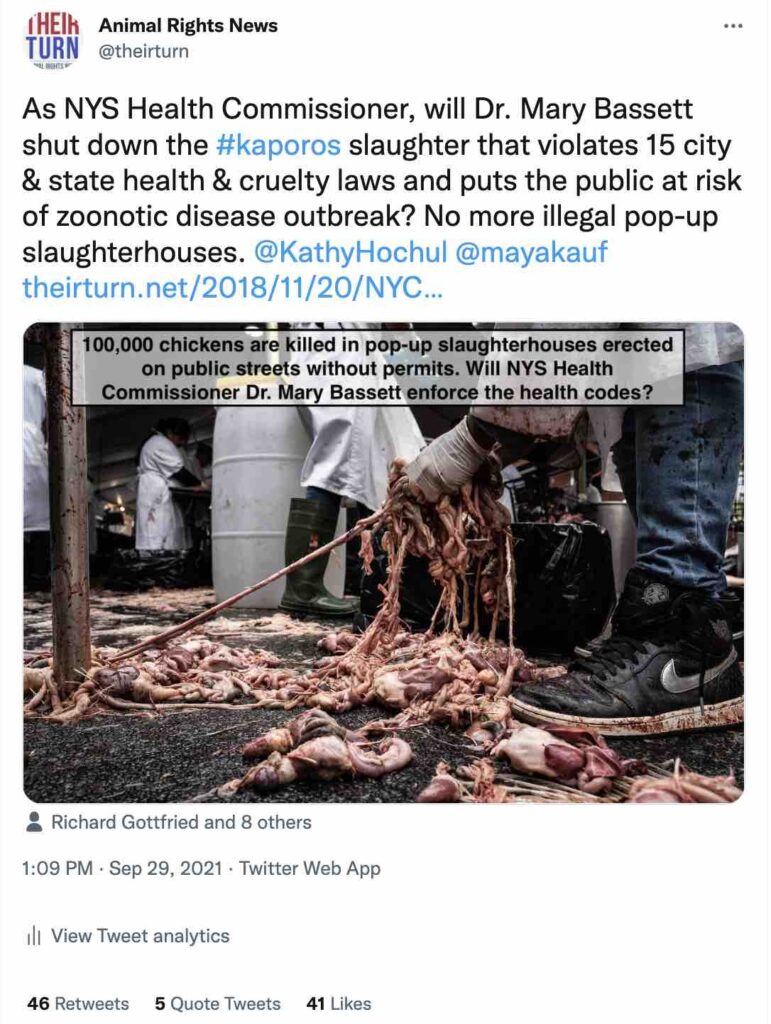
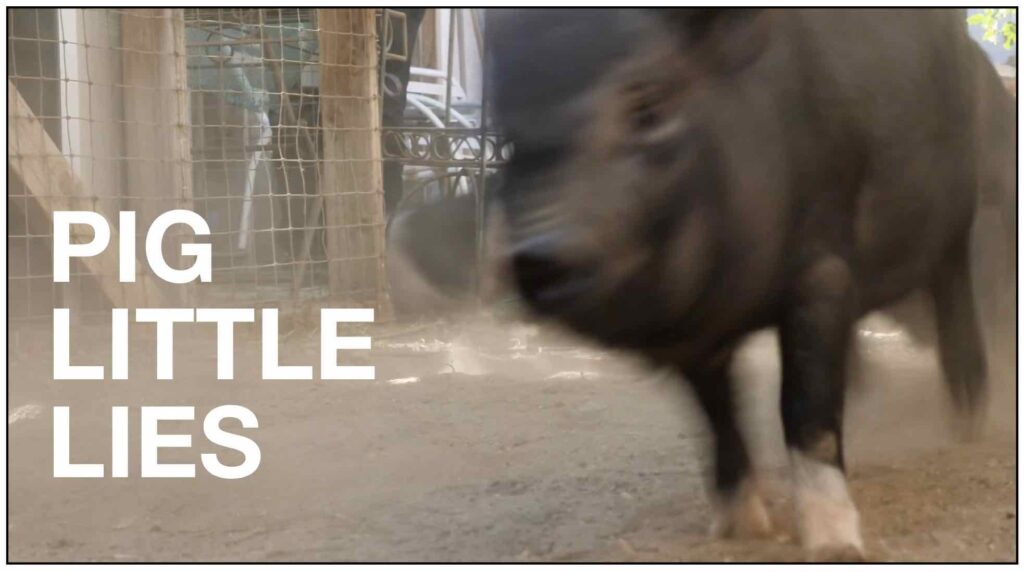
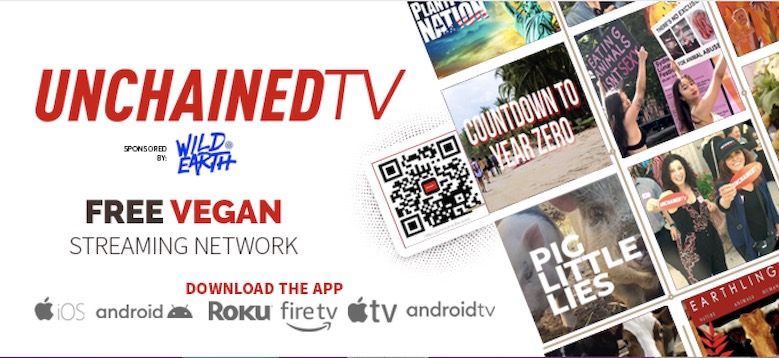
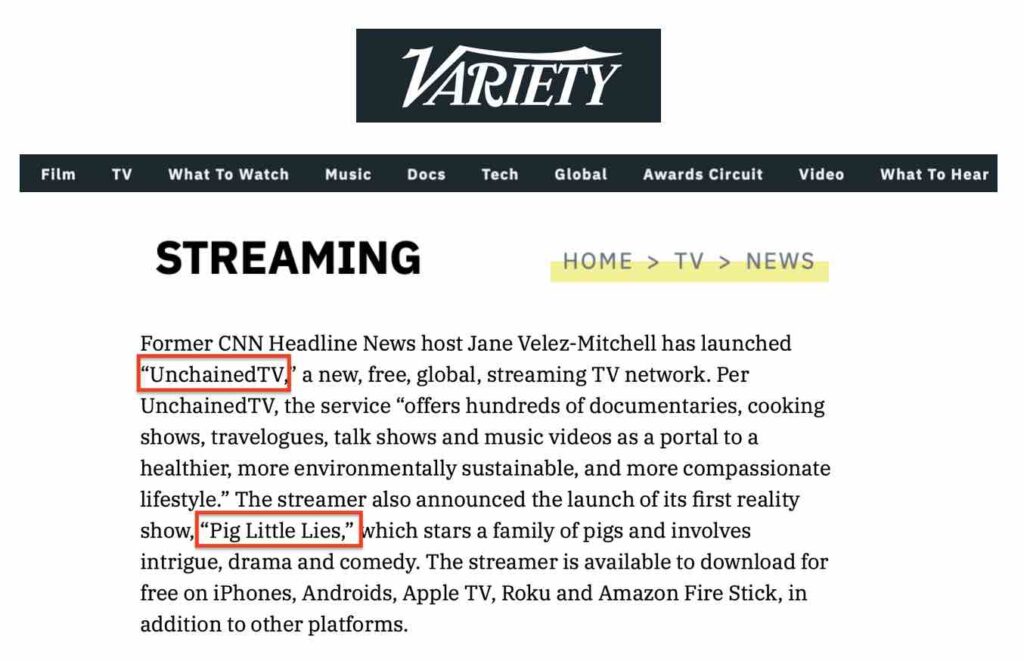
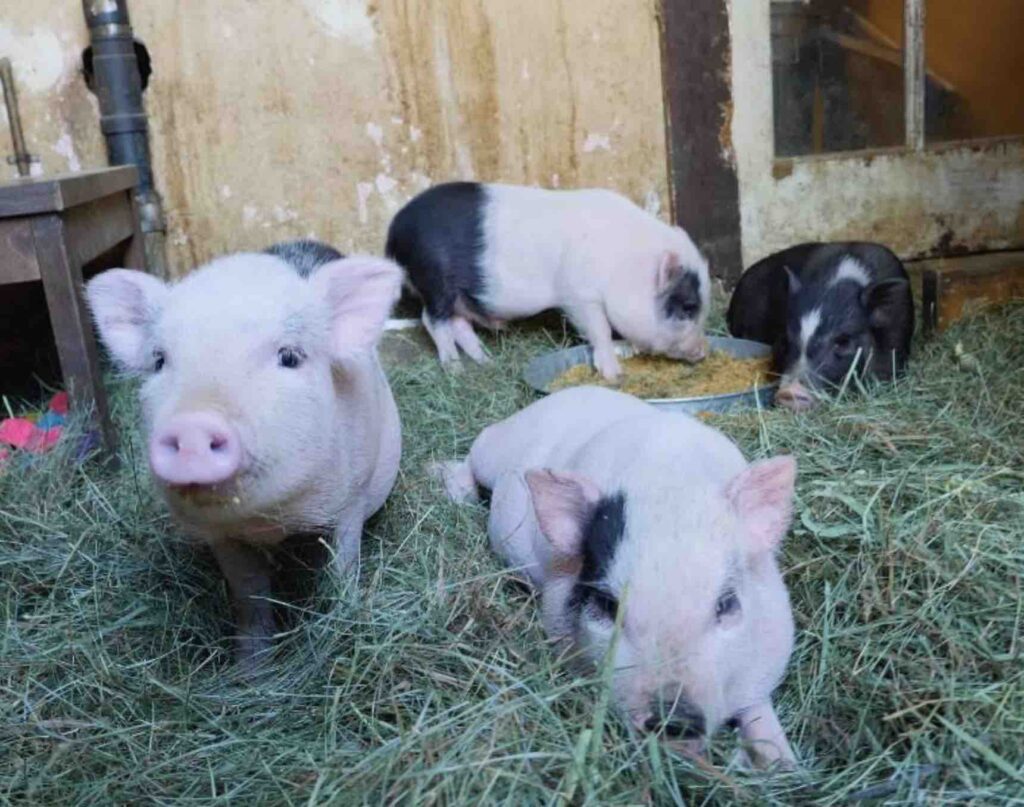
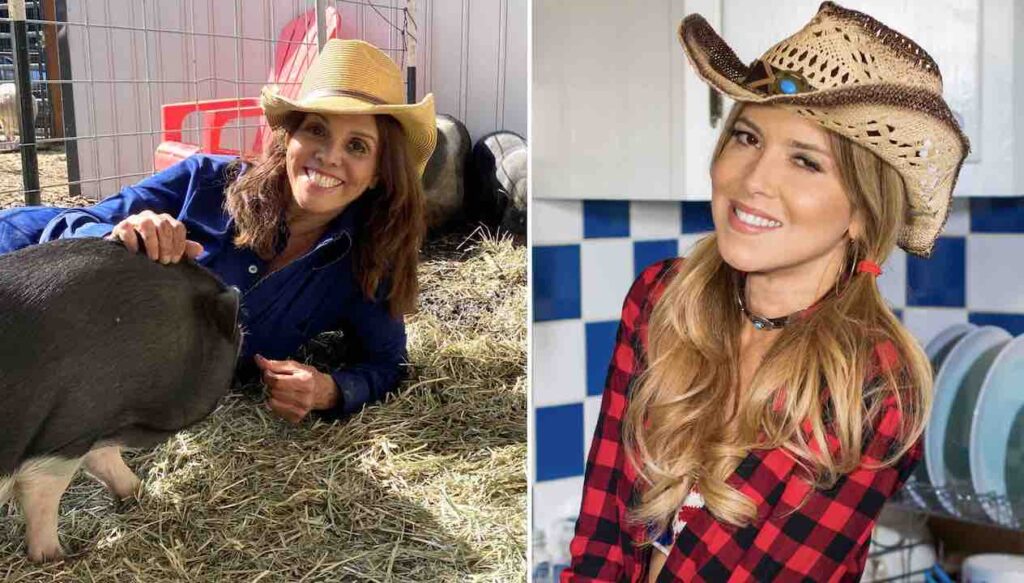
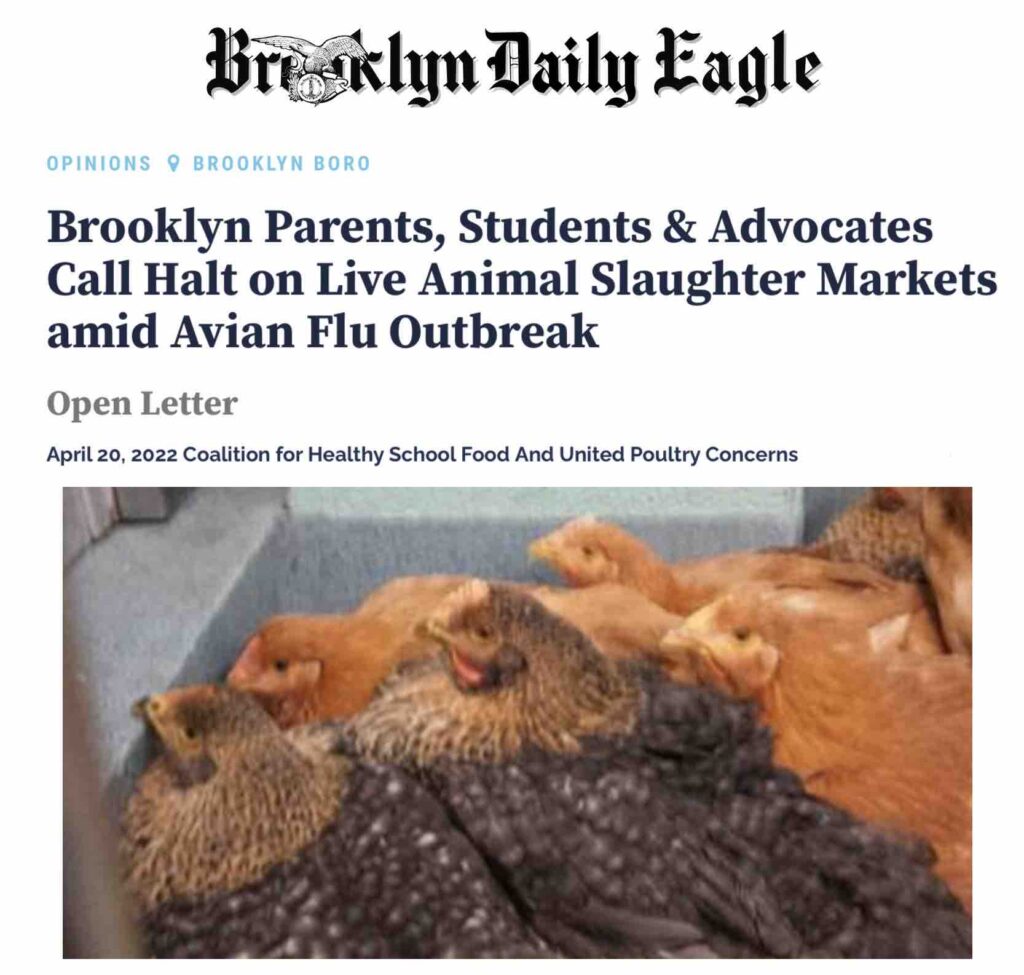
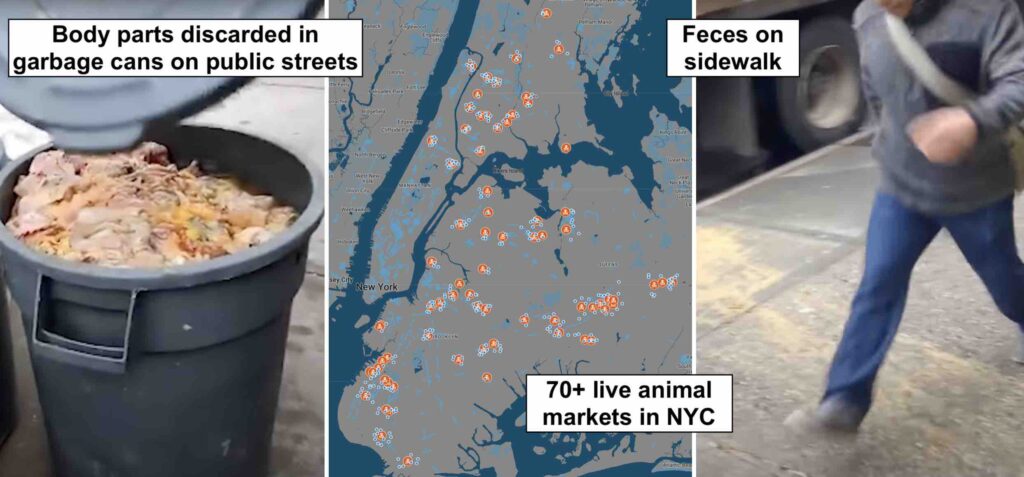
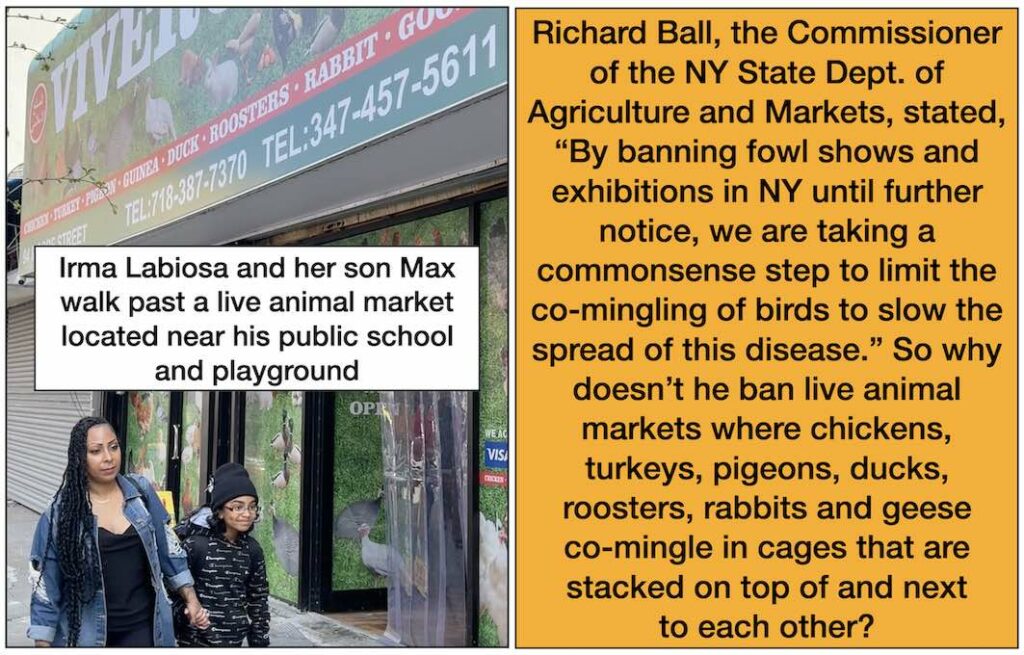
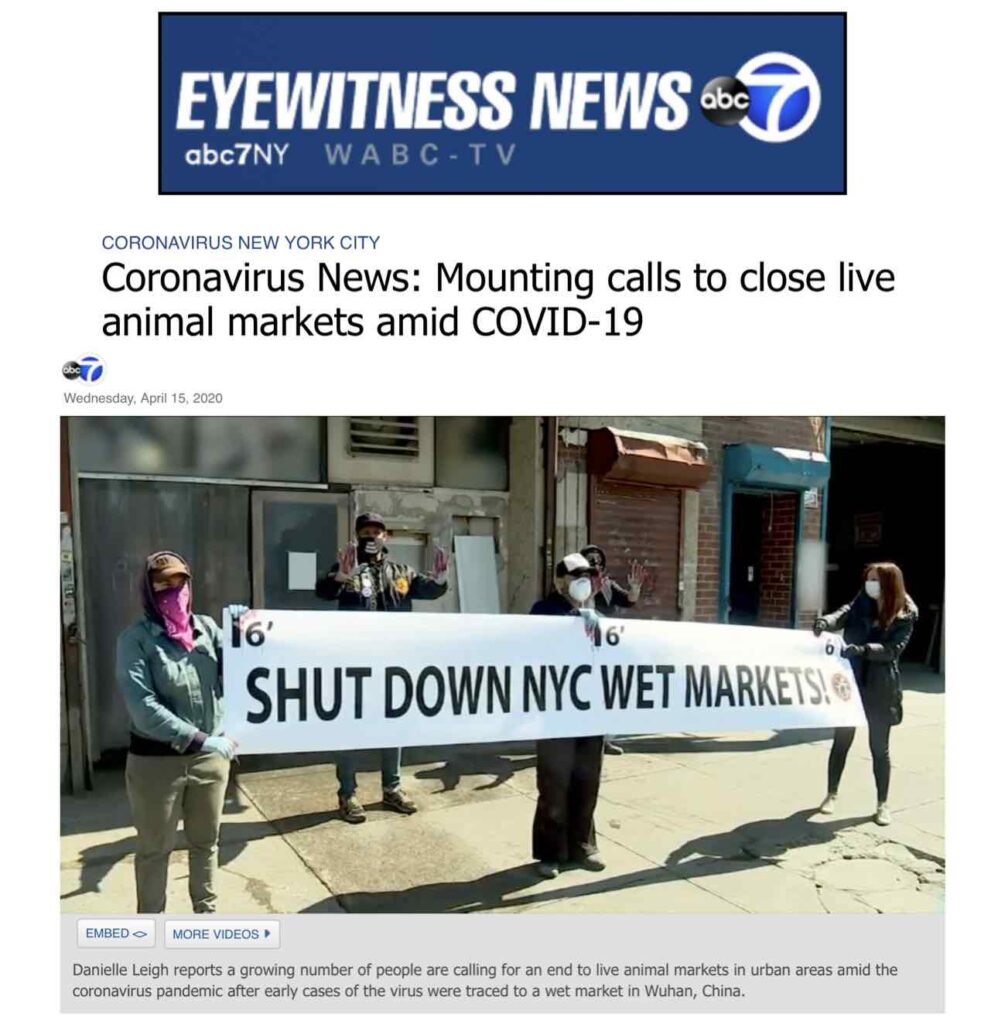
Follow Their Turn